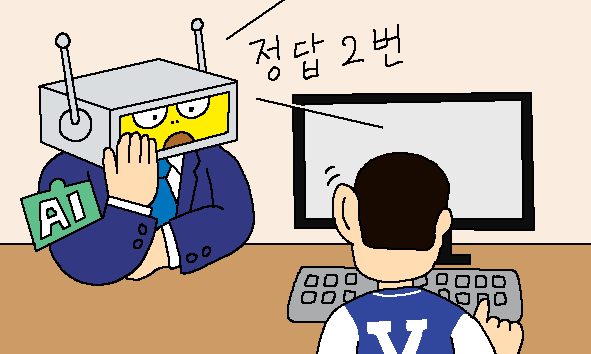The Evolution of Cheating in Examinations
Cheating has been a persistent issue throughout history, especially in high-stakes academic settings. During the Joseon Dynasty in Korea, the gwageo examination system was the most critical path to government positions. However, it was not uncommon for candidates to engage in dishonest practices. Professional cheaters, known as “geowall (giopul),” would write answers on behalf of others. One notable example is found in the late Joseon-era Hanmun novelYugwang-eokjeonby Lee Ok, which features a character named Yugwang-eok, a geowall who provided answers to top-ranking examinees. This indicates that even the highest achievers were not immune to such practices. Additionally, small booklets called “hyeopchaek” were used as early cheat sheets, containing essential content for exams.
Technological Advancements and New Cheating Methods
As technology advanced, so did the methods of cheating. In the 2005 college entrance exam, a new form of cheating emerged where students, referred to as “athletes,” used hidden mobile phones attached to their bodies. These devices were tapped the same number of times as the correct answer numbers during the test. Their accomplices outside the test site would then relay the answers via text messages. This scheme was eventually uncovered, leading to the invalidation of scores for 314 individuals involved. Following this incident, all electronic devices were strictly banned from test sites.
Cheating in Modern Examinations: The Case of Gaokao
In China, the Gaokao is one of the most important exams, determining students’ futures. The competition is fierce, and cheating tools have become increasingly sophisticated. For instance, special pens with infrared sensors that automatically translate English words, rulers with answer-receiving functions, and glasses that allow viewing neighboring test papers are now common. Companies like DeepSeek have also taken measures to disable AI features that could solve exam questions when images of Gaokao problems are uploaded, aiming to prevent cheating during the exam period.
The Impact of AI on Academic Integrity
The emergence of AI technologies like ChatGPT has made cheating more accessible than ever. Two years ago, a private university in Seoul conducted an “open-book” exam allowing the use of books and the internet. A student who had missed classes due to job preparation simply used answers generated by ChatGPT and ranked 22nd out of 80 students. Another student who attended all lectures ranked 24th, highlighting the ethical dilemma faced by students in such situations.
Ethical Dilemmas and the Future of Examinations
At Yonsei University, a midterm exam reportedly involved widespread cheating. Students secretly used AI tools like ChatGPT to answer multiple-choice questions on an online platform. The irony of the situation was that the course title wasNatural Language Processing (NLP) and ChatGPT. As AI becomes more integrated into daily life, outright bans on its use in exams may not be sustainable. Instead, there is a growing need to rethink how exams are structured to assess students’ ability to effectively use AI tools. This shift could lead to a more honest and fair evaluation of knowledge and skills in an era where coexistence with AI is inevitable.
